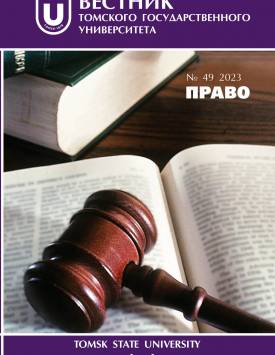On the issue of integrated institutions
The main factors of formation and development trends in the Russian penitentiary system of a new type of institutions combining several types of institutions and several types of regime are considered. It was officially recognised in Russian legislation in 2001 and is now enshrined as one of the main directions in the Concept of the development of the penal and correctional system until 2030. The author criticises the provisions of the Concept on the "client-centred" approach to the detention of convicts, as well as the focus on the creation of a single experimental institution with unclear prospects for its scaling up. The type of such an institution cannot be universal, it should be multivariant and built on a modular principle. Given that the absolute majority of convicts are currently serving their sentences in strict-regime colonies, it is advisable to use a special-regime colony as a basis. Scientific support of the project implementation should be comprehensive and not be reduced to legal aspects. The importance of optimal differentiation of convicts as a practical expression of their classification is growing. Perhaps in the future it is necessary to abandon the division of conditions of serving the sentence, focusing on the classification of convicts and the use of a wider range of positive incentives significant for them. A new law on the penal enforcement system will create a full-fledged legal basis for the existence and development of penal enforcement complexes. Among other things, the issue of organisational structure (management structure) of the executive complexes should be discussed, including the scope of law enforcement powers of the heads of their constituent structures (modules, sectors). This also applies to their competence to apply measures of encouragement and punishment to convicts, suspects, accused. The relevance of the scientific basis of differentiation of convicted persons, its criteria, grounds, procedure and legal consequences, and in accordance with the principle of "necessary sufficiency" is increasing. For example, the experience of pretrial detention centres shows that one of the conditions for violating the rights of prisoners to adequate accommodation conditions is often in fact the numerous departmental instructions to separate more and more categories of prisoners. As a result, separate cells in isolation centres are often insufficient. The problem of ensuring the integrative (passive and active) security of prisoners, staff and visitors must also be addressed on a new organisational and technological basis. The author declares no conflicts of interests.
Keywords
penal and correctional system, united type institutions, penal and correctional complexesAuthors
| Name | Organization | |
| Utkin Vladimir A. | Tomsk State University | utkinva@inbox.ru |
References

On the issue of integrated institutions | Tomsk State University Journal of Law. 2023. № 49. DOI: 10.17223/22253513/49/7
